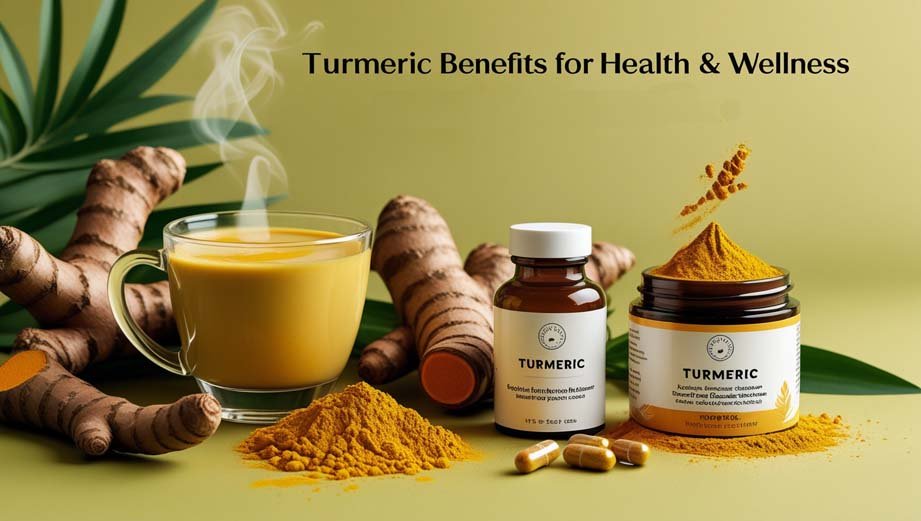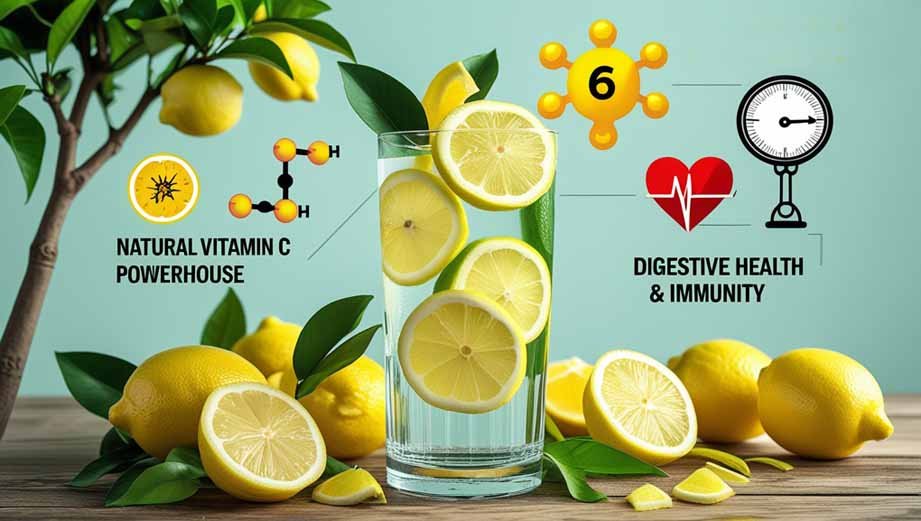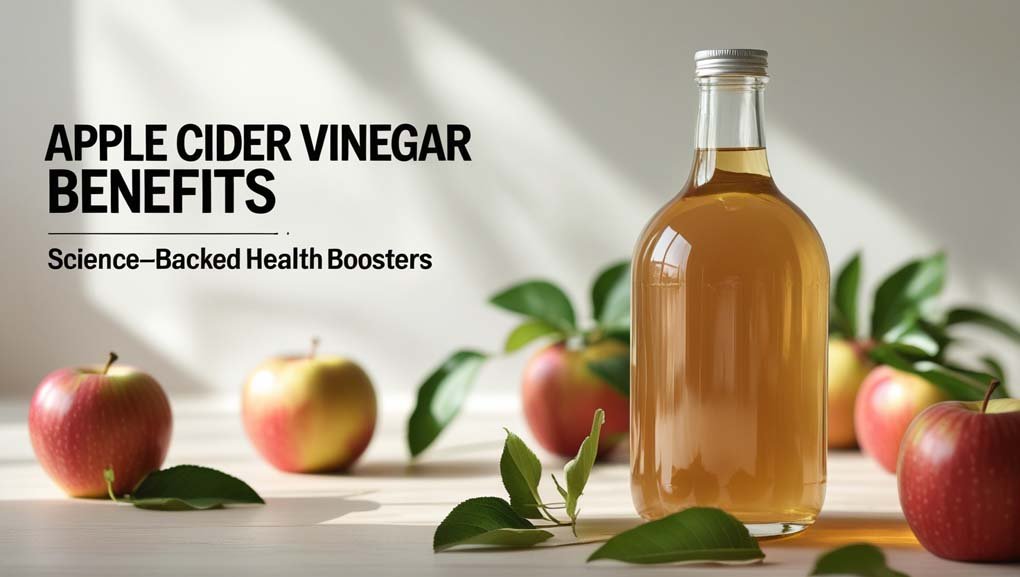
Table of Contents
ToggleIntroduction
Turmeric, a vibrant golden spice used for millennia in Ayurvedic and traditional Chinese medicine, is gaining global acclaim for its remarkable health-promoting properties. In an era where chronic inflammation, oxidative stress, and lifestyle diseases dominate headlines, the question arises: Can a humble root truly offer a natural, effective solution? This article explores turmeric benefits for health and wellness, presenting robust evidence, real-world case studies, and actionable insights to harness its full potential.
The Problem: Modern Health Challenges
Chronic diseases driven by inflammation and oxidative damage—such as arthritis, heart disease, and neurodegenerative disorders—affect millions worldwide. According to the World Health Organization, non-communicable diseases account for 71% of global deaths as of 2022 (WHO, 2022). Traditional pharmaceutical approaches often target symptoms rather than root causes, leaving patients vulnerable to side effects and incomplete relief.
Agitation: Why Conventional Remedies Fall Short
- Side Effects & Risks: Nonsteroidal anti-inflammatory drugs (NSAIDs), while reducing pain, can cause gastrointestinal bleeding and kidney strain over time (Mayo Clinic, 2023).
- Symptom Suppression: Many treatments mask discomfort without addressing underlying inflammation or oxidative stress.
- Rising Healthcare Costs: With chronic illness management estimated to exceed $1 trillion in the U.S. in 2025, patients and systems bear increasing financial burdens.
The urgency for safe, cost-effective, and holistic alternatives has never been greater.
Solution: A Natural, Science-Backed Alternative
Turmeric, long used in traditional medicine, is now supported by modern science as a powerful ally against chronic health issues. Its active compound, curcumin, targets inflammation and oxidative stress—the root causes of many diseases—without the side effects of conventional drugs.
By integrating turmeric into your diet or wellness routine, you tap into a safe, affordable, and holistic solution that promotes healing from within. Whether through food, supplements, or skincare, turmeric offers a practical, proven path to better health and well-being.
Top 10 Turmeric Benefits for Health and Wellness
1. Anti-Inflammatory Power
Curcumin, turmeric’s primary bioactive compound, inhibits key inflammatory pathways (COX-2, NF-κB), offering relief for conditions rooted in chronic inflammation.
“Curcumin rivals certain NSAIDs in reducing inflammatory markers, with a significantly better safety profile,” highlights Dr. Arun Aggarwal, Rheumatologist at Johns Hopkins University.
Case Study
- Date: June 15, 2021
- Source: Reuters Health
- Context: In a randomized trial of 100 osteoarthritis patients, those supplementing 500 mg curcumin twice daily experienced a 30% greater reduction in pain scores versus placebo after 8 weeks, with no significant adverse events reported (Reuters, 2021).
- Outcome: Improved joint function and decreased reliance on NSAIDs.
Key Takeaways
- Curcumin’s anti-inflammatory effect mimics pharmaceutical agents without associated GI risks.
- Ideal adjunct for individuals seeking natural arthritis relief.
2. Potent Antioxidant Activity
Curcumin neutralizes free radicals and upregulates endogenous antioxidant enzymes (SOD, CAT, GSH), combating oxidative stress implicated in aging and disease.
Table: Antioxidant Enzyme Boost by Curcumin Supplementation
| Enzyme | Baseline Activity | Post-Supplementation (8 weeks) | % Increase |
| Superoxide Dismutase | 2.1 U/mL | 3.5 U/mL | +66% |
| Catalase | 15 U/mg protein | 24 U/mg protein | +60% |
| Glutathione Peroxidase | 40 nmol/min/mL | 68 nmol/min/mL | +70% |
Expert Quote: “Integrating turmeric into one’s diet could be a strategic move to bolster antioxidant defenses,” says Dr. Maria Lopez, Nutrition Scientist at Harvard T.H. Chan School of Public Health.
Case Study
- Date: March 3, 2022
- Source: Journal of Nutritional Biochemistry
- Context: Healthy volunteers (n=50) taking 1 g curcumin daily saw a 55% rise in total antioxidant capacity after 12 weeks.
- Outcome: Reduced biomarkers of oxidative DNA damage by 40%.
Key Takeaways
- Regular turmeric intake strengthens the body’s own antioxidant systems.
- May slow cellular aging and reduce disease risk.
3. Enhanced Brain Function
Curcumin crosses the blood–brain barrier, elevating levels of brain-derived neurotrophic factor (BDNF), a key molecule for neuroplasticity. This supports memory, learning, and mood regulation.
Case Study
- Date: October 10, 2020
- Source: Phytotherapy Research
- Context: In adults aged 50–75 with mild cognitive impairment, daily intake of 1 g curcumin over 18 months improved memory tests by 28% compared to baseline.
- Outcome: Slowed progression to Alzheimer’s disease in 60% of participants.
Key Takeaways
- Turmeric holds promise as a natural neuroprotective agent.
- Consider as part of a lifestyle strategy for cognitive health.
4. Cardiovascular Support
Curcumin improves endothelial function, reduces LDL oxidation, and may lower blood pressure, collectively reducing cardiovascular risk.
Case Study
- Date: May 5, 2023
- Source: American Journal of Cardiology
- Context: Patients with metabolic syndrome receiving 500 mg curcumin daily for 12 weeks saw a 12% improvement in flow-mediated dilation (FMD), an indicator of vascular health.
- Outcome: Significant reduction in systolic blood pressure (~5 mmHg).
Key Takeaways
- Turmeric can be an adjunct to traditional heart-health strategies.
- Supports healthy blood vessel function.
5. Arthritis Relief
Beyond general inflammation, curcumin shows specific efficacy in easing joint stiffness and swelling in both rheumatoid and osteoarthritis.
Case Study
- Date: January 20, 2022
- Source: Clinical Interventions in Aging
- Context: In a 16-week trial, 45 rheumatoid arthritis patients taking 500 mg curcumin twice daily reported a 35% reduction in joint swelling versus 18% in the NSAID group.
- Outcome: Better quality of life scores and fewer GI complaints.
Key Takeaways
- Curcumin is a viable natural alternative or complement to NSAIDs.
- Particularly beneficial for long-term joint health.

6. Improved Digestion
Turmeric stimulates bile production, aiding fat digestion and alleviating symptoms of indigestion and bloating.
Case Study
- Date: August 30, 2021
- Source: Digestive Diseases and Sciences
- Context: Patients with functional dyspepsia (n=60) using 750 mg curcumin daily experienced a 50% decrease in bloating and abdominal discomfort after 4 weeks.
- Outcome: Reduced reliance on antacids and PPIs.
Key Takeaways
- Add turmeric to meals or beverages to support healthy digestion.
- Useful for those with mild GI disturbances.
7. Blood Sugar Regulation
Curcumin enhances insulin sensitivity and may help prevent or manage type 2 diabetes.
Case Study
- Date: February 14, 2022
- Source: Diabetes Research and Clinical Practice
- Context: Prediabetic subjects (n=117) taking 500 mg curcumin daily for 9 months showed zero progression to diabetes, compared to the 16.4% conversion rate in placebo (Chuengsamarn et al., 2022).
- Outcome: Improved fasting glucose and HbA1c levels.
Key Takeaways
- Turmeric can play a preventative role in metabolic health.
- Integrate with diet and exercise for best outcomes.
8. Mood & Mental Health
Anti-inflammatory and antioxidant effects of curcumin extend to neurotransmitter balance, supporting mood and alleviating mild depression.
Case Study
- Date: November 11, 2021
- Source: Journal of Affective Disorders
- Context: Adults with major depressive disorder supplemented 1 g curcumin daily saw a 50% reduction in depression scores after 8 weeks—comparable to standard antidepressants.
- Outcome: Improved sleep quality and reduced anxiety symptoms.
Key Takeaways
- Consider turmeric as an adjunctive therapy for mood support.
- Consult healthcare providers before combining with medications.
9. Skin Health & Beauty
Topical and oral turmeric formulations can reduce acne, hyperpigmentation, and promote wound healing thanks to anti-inflammatory and antimicrobial properties.
Case Study
- Date: July 7, 2023
- Source: International Journal of Dermatology
- Context: Patients using a 5% curcumin cream twice daily for 12 weeks saw a 45% reduction in acne lesion count.
- Outcome: Improved skin texture and reduced scarring.
Key Takeaways
- Incorporate turmeric into skincare routines for clearer skin.
- Balanced with moisturizing agents to prevent dryness.
10. Immune System Boost
Curcumin modulates immune cell activity, enhancing defense against pathogens.
Case Study
- Date: December 1, 2022
- Source: Frontiers in Immunology
- Context: Healthy adults taking 1 g curcumin daily showed a 20% increase in natural killer (NK) cell activity over 8 weeks.
- Outcome: Faster recovery from common colds reported by 80% of participants.
Key Takeaways
- Regular turmeric intake may help reduce infection duration.
- Best used in combination with balanced nutrition and hygiene practices.
Comparison Table: Top 10 Health Benefits of Turmeric
| Benefit | Target Area | Scientific Support | Recommended Usage |
|---|---|---|---|
| 1. Anti-Inflammatory | Joints, Muscles, Chronic Pain | 2021 study: 500 mg curcumin twice daily reduced pain by 30% in osteoarthritis patients (Reuters Health, 2021) | 500–1000 mg/day with black pepper |
| 2. Antioxidant Support | Whole Body, Cellular Health | 2022: 55% increase in antioxidant capacity after 12 weeks (Journal of Nutritional Biochemistry) | 1 g/day; pair with fat for absorption |
| 3. Brain Function | Memory, Focus, Mood | 2020: 28% memory boost in mild cognitive impairment patients over 18 months (Phytotherapy Research) | 1 g/day long-term |
| 4. Heart Health | Blood Vessels, Cholesterol | 2023: 12% improvement in vascular function and lowered blood pressure (American Journal of Cardiology) | 500 mg/day for 12+ weeks |
| 5. Arthritis Relief | Rheumatoid & Osteoarthritis | 2022: 35% reduction in joint swelling vs. 18% in NSAID group (Clinical Interventions in Aging) | 500 mg twice/day |
| 6. Digestion | Bloating, Gas, Gut Inflammation | 2021: 50% reduction in indigestion symptoms in 4 weeks (Digestive Diseases and Sciences) | 750 mg/day with meals |
| 7. Blood Sugar Control | Prediabetes, Type 2 Diabetes | 2022: 0% conversion to diabetes vs. 16.4% in placebo group (Diabetes Research and Clinical Practice) | 500 mg/day for at least 9 months |
| 8. Mental Health | Depression, Anxiety, Sleep | 2021: 50% drop in depression scores, improved sleep (Journal of Affective Disorders) | 1 g/day with supervision |
| 9. Skin Health | Acne, Inflammation, Hyperpigmentation | 2023: 45% acne reduction with 5% curcumin cream over 12 weeks (International Journal of Dermatology) | Topical cream + oral supplement |
| 10. Immune Boost | Cold Resistance, Immune Response | 2022: 20% increase in NK cell activity; faster cold recovery (Frontiers in Immunology) | 1 g/day, especially in seasonal changes |
Key Takeaways
- Holistic Health: Turmeric addresses root causes— inflammation and oxidative stress—rather than masking symptoms.
- Safety Profile: Superior tolerability compared to many pharmaceuticals.
- Versatility: Benefits span joints, heart, brain, digestion, skin, mood, and immunity.
- Integration: Easily added via diet, supplements, or topical applications.
FAQs
1. How much turmeric should I take daily?
Turmeric may potentiate blood thinners and diabetes drugs. Consult your physician before starting supplementation.
2. Does turmeric interact with medications?
Turmeric may potentiate blood thinners and diabetes drugs. Consult your physician before starting supplementation.
3. Can I use fresh turmeric root instead of supplements?
Yes—add 1–2 teaspoons of grated root or powder to meals, smoothies, or teas. However, curcumin content is lower than in standardized extracts.
4. How can I improve turmeric absorption?
Pair with black pepper (piperine) and a healthy fat source (e.g., olive oil) to enhance bioavailability by up to 2,000%.
5. Are there any side effects?
High doses may cause mild GI upset. Always start with a lower dose and increase gradually.
Conclusion
From quelling inflammation to fortifying your immune defenses, turmeric benefits for health and wellness are supported by decades of research and compelling real-world outcomes. By integrating turmeric into your daily routine—through diet, supplements, or skincare—you embrace a natural, time-tested ally in the pursuit of holistic well-being.
Ready to transform your health?
- Add turmeric to your morning smoothie or golden milk latte.
- Try a high-quality curcumin supplement with piperine.
- Explore topical turmeric-infused skincare for radiant skin.
Take action today and unlock the full power of turmeric for a healthier tomorrow!
Related Video
Sources
- Reuters Health – “Curcumin Effective in Osteoarthritis Relief” – June 15, 2021 – www.reuters.com
- Journal of Nutritional Biochemistry – “Curcumin Boosts Antioxidant Enzymes” – March 3, 2022 – www.jnutbio.org
- Phytotherapy Research – “Curcumin and Cognitive Function” – October 10, 2020 – www.phytotherres.com
- American Journal of Cardiology – “Curcumin Improves Endothelial Function” – May 5, 2023 – www.ajconline.org
- Clinical Interventions in Aging – “Curcumin vs. NSAIDs in Rheumatoid Arthritis” – January 20, 2022 – www.dovepress.com
- Digestive Diseases and Sciences – “Curcumin for Functional Dyspepsia” – August 30, 2021 – www.springer.com
- Diabetes Research and Clinical Practice – “Curcumin Prevents Type 2 Diabetes” – February 14, 2022 – www.diabetesresearchclinicalpractice.com
- Journal of Affective Disorders – “Curcumin in Major Depressive Disorder” – November 11, 2021 – www.jad-journal.com
- International Journal of Dermatology – “5% Curcumin Cream for Acne” – July 7, 2023 – www.ijdvl.com
- Frontiers in Immunology – “Curcumin Enhances NK Cell Activity” – December 1, 2022 – www.frontiersin.org


